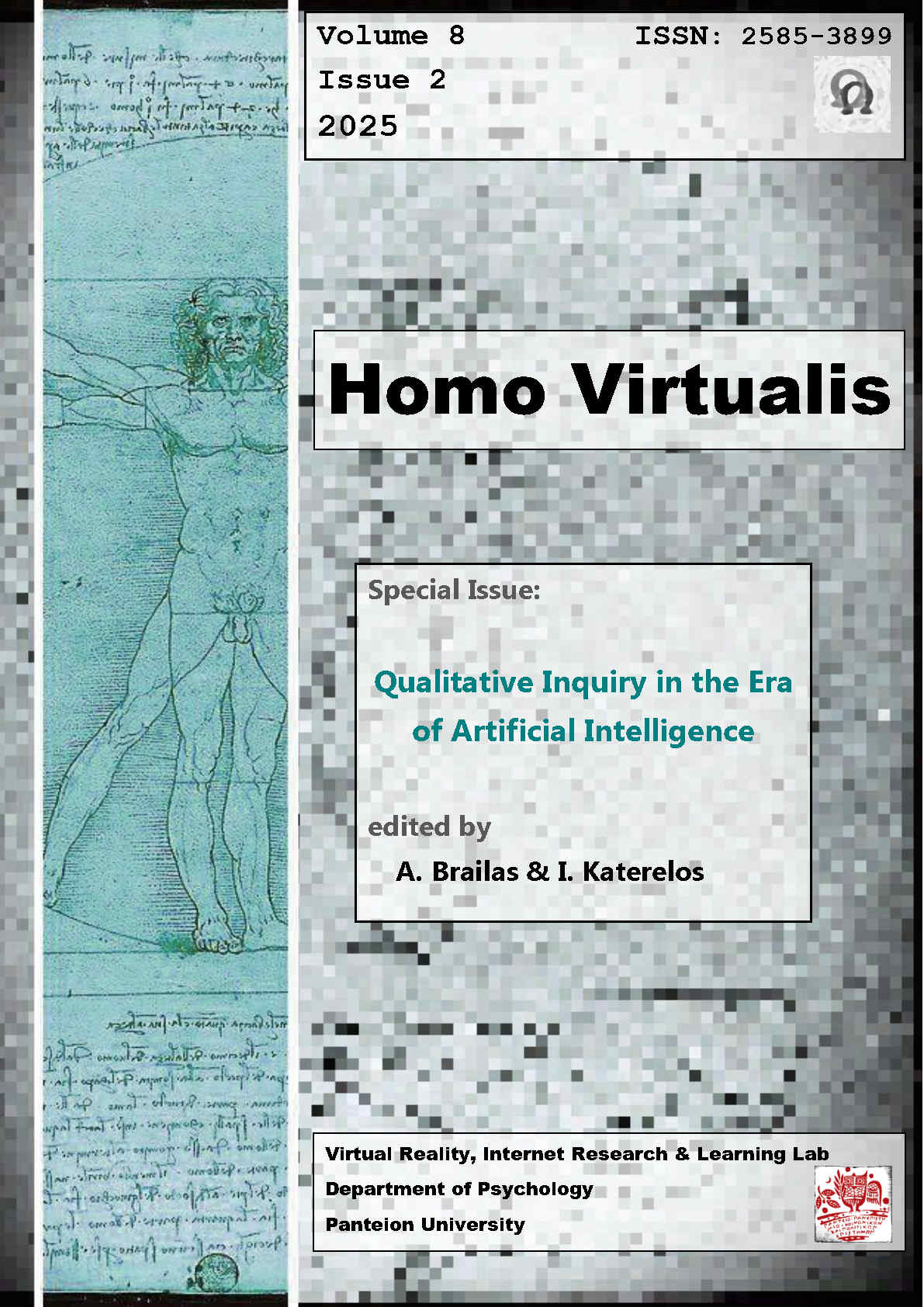Gen Z at the onset of adulthood: Identity perception, interpersonal relationships, existential questions and dreams for the future
Abstract
This study investigates the dynamic interplay between self-perception, interpersonal relationships, existential questions, and future aspirations during the phase of emerging adulthood, giving voice to young adults of Generation Z in Greece in 2024. This period is experienced as a liminal stage characterized by the ongoing search for balance, self-exploration, and the evolving sense of self within the context of close relationships. The study examines how participants perceive various existential concerns (meaning of life, time, faith, human experience) and how these shape their expectations and visions of a desirable future. Using a qualitative methodology, semi-structured interviews were conducted that incorporated multimodal and narrative tools, allowing participants to express themselves freely, even regarding emotions that are difficult to articulate verbally. Thematic analysis revealed recurring patterns marked by emotional intensity, doubt, and a search for stability. Anxiety, distress, worry, and a feeling of being “trapped” in a transitional identity emerged as central experiences. A notable element was the presence of self-awareness, while the quality of interpersonal relationships contributed to positive personal development. Existential questions triggered deeper reflection and ultimately guided participants in shaping their vision of an ideal future, articulated through drawings. These visual representations helped participants project their hopes, using imagination and symbolism, presenting hope as a counterbalance to uncertainty. The study provides an in-depth understanding of the psychosocial reality of Gen Z and enhances the literature on emerging adulthood by offering a comprehensive view of how identity, relationships, concerns, and dreams for the future intersect during this formative stage of life.
Article Details
- Come citare
-
Argyropoulou, X. (2025). Gen Z at the onset of adulthood: Identity perception, interpersonal relationships, existential questions and dreams for the future. Homo Virtualis, 8(2), 62–89. https://doi.org/10.12681/homvir.43482
- Sezione
- Articles

TQuesto lavoro è fornito con la licenza Creative Commons Attribuzione 4.0 Internazionale.
Authors who publish with this journal agree to the following terms:
· Authors retain copyright and grant the journal right of first publication with the work simultaneously licensed under a Creative Commons Attribution License that allows others to share the work with an acknowledgement of the work's authorship and initial publication in this journal.
· Authors are able to enter into separate, additional contractual arrangements for the non-exclusive distribution of the journal's published version of the work (e.g. post it to an institutional repository or publish it in a book), with an acknowledgement of its initial publication in this journal.
· Authors are permitted and encouraged to post their work online (preferably in institutional repositories or on their website) prior to and during the submission process, as it can lead to productive exchanges, as well as earlier and greater citation of published work.



